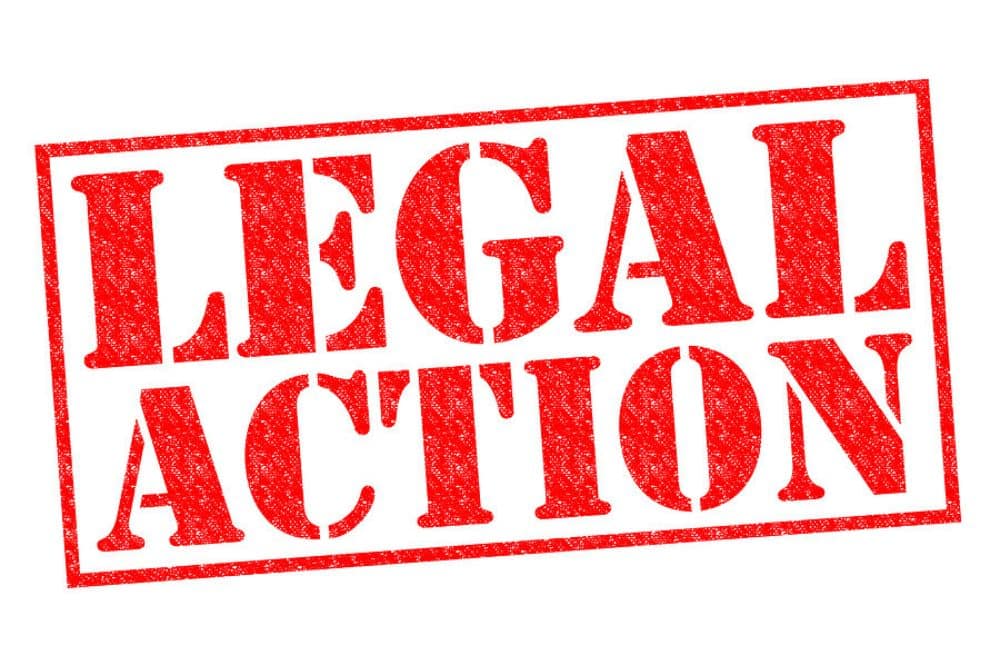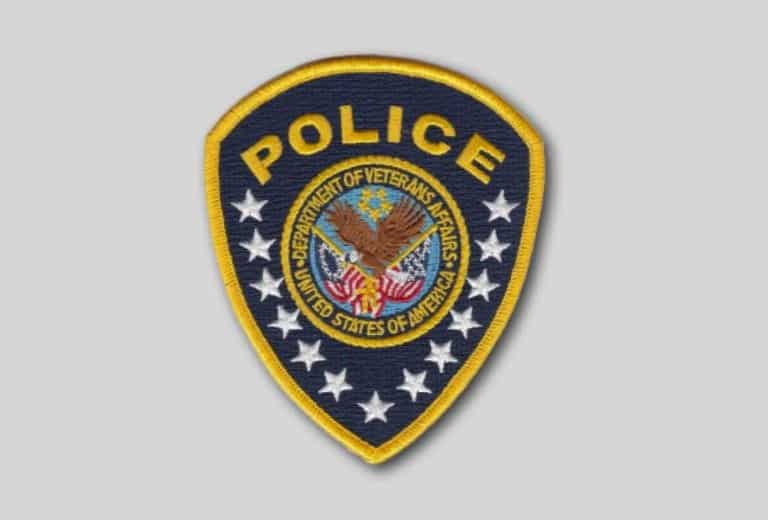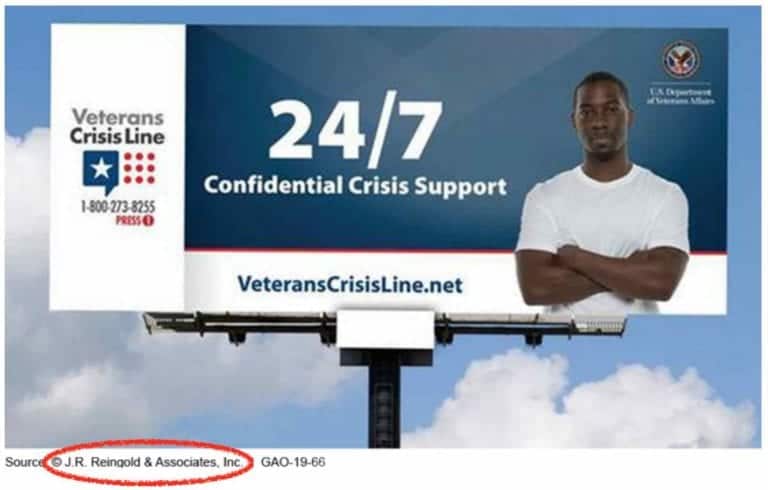MVA Threatens Legal Action Over Inadequate Herbicide Rule, Secretary ‘Misleading’ Veterans
The Department of Veterans Affairs is being colossally called out for failing disabled veterans exposed to herbicide with its recent bait and switch.
For the past 50 years, VA has promised to right the wrongs that resulted in thousands if not millions of veterans being wrongly exposed to toxins in herbicides used worldwide.
Over the past decade, a small but feisty nonprofit named Military Veterans Advocacy (MVA) has been at the forefront fighting for Blue Water Navy Veterans and other veterans exposed to herbicides around the Vietnam conflict who did not have boots on the ground. Yesterday, MVA called out the VA Secretary Denis McDonough for making “misleading” statements bragging about his herbicide rule proposal.
The Secretary said his proposal would expand benefits for veterans impacted by herbicide proposal, but the reality is the rule would not address the countless veterans left hanging waiting for VA to finally acknowledge their exposures to get benefits deserved but not delivered.
Basically, the Secretary claimed a big win while delivering a nothing burger to the veterans MVA protects. Those veterans are the other disabled veterans who did not set boots on the ground or serve in the areas VA presently acknowledges as having excessive exposure to toxic herbicides.
Common sense would suggest US troops, at the behest of Uncle Sam, somehow moved toxic herbicides to Vietnam and elsewhere using ships and other implements. And not all the herbicides, commonly known as Agent Orange, were used in Vietnam.
Unless the Pentagon was commonly deploying these assets using a Star Trek teleporter, the containers of herbicide were shipped using… ships… and planes. These ships and planes likely traversed through what is called Blue Water or various air bases or both before landing in Vietnam.
There are reports of Agent Orange being shipped and used throughout Southeast Asia including countries like Japan, Guam, Panama, and Korea. Veterans who were frequently exposed to those chemicals despite not being in Vietnam should be entitled to veterans compensation benefits to offset for the harm caused including cancer.
But Uncle Sam is a sly fox who frequently outsmarts veterans and Congress with its silver-tongued wordsmithery, omissions, and obfuscations.
Enter the Department of Veterans Affairs according to Secretary Denis McDonough in the post-law era of no federal government accountability for slight of hand where criminals go free while whistleblowers are attacked.
Imagine a world where promises of expanded benefits for veterans vanish into thin air, courtesy of the Department of Veterans Affairs’ latest act of illusion. In a performance that would make Houdini proud, the VA has managed to pull the wool over the eyes of veterans nationwide, with a rule change on herbicide exposure that’s as obvious as a mirage, and equally as elusive to address.
Join us as we dive into the VA’s masterclass in making meaningful support disappear, leaving veterans and advocates like the MVA preparing to pull a lawsuit out of their hat.
New Herbicide Proposed Rules
In a glaring oversight that has sparked outrage and the threat of legal action, the Department of Veterans Affairs (VA) released a preliminary rule on February 12, 2024, regarding herbicide exposure benefits for veterans. This rule, far from being the advancement it was touted to be by VA Secretary Denis McDonough, has been met with severe criticism from the Military Veterans Advocacy (MVA). The organization accuses the VA of misleading veterans and the public about the rule’s actual impact and has prepared to sue should the VA fail to rectify its shortcomings, particularly in addressing the needs of veterans exposed to herbicides in Guam, Panama, Okinawa, and among the Blue Water Navy.
“The VA Secretary, Denis McDonough, issued a statement bragging that the rule increases opportunities for veterans to obtain benefits from herbicide exposure. The Secretary’s statement is misleading. The only increase in the presumptive area is the northern half and 12-nautical mile territorial sea of Phu Quoc island. In actuality, that area had been incorporated by the MVA case of Procopio v. Wilkie. The remaining area covered by the rule was already covered by the Blue Water Navy Act and the PACT Act.”
The VA’s announcement, initially presented as a significant step forward in supporting veterans affected by herbicide exposure, quickly unraveled under scrutiny. The MVA pointed out that the so-called expansion of benefits to include the northern half and the 12-nautical mile territorial sea of Phu Quoc Island was not only misleading but redundant. This area had already been recognized under the Procopio v. Wilkie case, rendering the VA’s announcement a reiteration of existing coverage rather than an actual extension of benefits. This revelation casts a shadow over the VA’s intentions and its commitment to genuinely supporting veterans, suggesting a superficial attempt at progress rather than meaningful action.
The MVA’s response to this perceived deception has been swift and firm.
Announcing plans to submit comments and the readiness to initiate legal proceedings, the MVA is challenging the VA to honor its obligations to veterans. The organization’s efforts to mobilize veterans and gather evidence through a dedicated portal underscore the seriousness with which they view the VA’s failure.
By urging veterans to share their experiences of herbicide exposure, especially in the neglected areas of Guam, Panama, Okinawa, and the Blue Water Navy, the MVA aims to compile a compelling case that the VA cannot ignore.
<< MVA PORTAL: Click Here to Voice Your Concern !! >>
Specific Topics To Address
If you have relevant information about the government’s actions concerning use of the herbicides in locations specific to the proposed rule or omitted information, MVA would like you address the following in their portal above:
- “It is important that you confine your comments to relevant matters. For Panama and Okinawa, discuss any actual or hearsay knowledge that you have concerning the presence of herbicide at your location. Include any pictures or descriptions of the spraying apparatus.”
- “For Guam, we are trying to reset the herbicide commencement date from January 1962 to August 15, 1958. So if you served on Guam during that period and observed or were told about the use of herbicides please address that in your comments.”
- “The VA preliminary rule did not address an expansion of the demarcation line to the theater of combat. Relevant matters to address would include contamination of the daily COD flight along with its passengers, cargo, and mail. Additionally if you noticed an oily substance on the bottom of attack aircraft while servicing them, please indicate that in your comments. Engineers or sonar techs, if you noticed a decrease in salinity while steaming off a river that would be highly relevant. Additionally, if you participated in an unrep that brought personnel, ammunition, or cargo that was staged in Vietnam or Guam, that would be helpful. If your ship took on water from a replenishment ship that visited Vietnam or Guan that would also be helpful. Obviously, what we are trying to do is prove cross-contamination. Provide as much detail as you can to include your rating, the name of your ship, date of exposure, and the name of any ship that might have been involved.”
This call to action for veterans to contribute their stories and evidence by March 13 is not just about challenging a rule; it’s a battle for justice and recognition. The MVA’s leadership, including Cheryl Cox for Guam, Mike Kvintus for Panama, Jerry Balmes for Okinawa, and Mike Yates for the Blue Water Navy, are at the forefront, guiding veterans through the process of making their voices heard. Their message is clear: the VA’s current stance is unacceptable, and the veteran community must unite to demand the comprehensive coverage and benefits they deserve.
As the MVA prepares for the possibility of taking the VA to court, their commitment to fighting for veterans’ rights is evident. The organization’s willingness to confront the VA’s inadequacies head-on highlights the ongoing struggle for fair treatment and recognition of all veterans exposed to herbicides.
This legal challenge is not just about a rule; it’s a stand against systemic neglect and the fight for the dignity and rights of those who served.





Best case scenario they gonna use your ass as a guinea pig, and if it helps, they gonna slide that shit off on somebody so they can make some money. All the penis surgeries they’re taking about they’re gonna go, you can forget that shit. They won’t even do disk replacements for people so fucked up that they can’t stand up for more than an hour. But what they will do is hire 2 people at $100,000 a year to tell people to come back in 15 years and ask. If you think I’m kidding, just keep on going there. Eventually you’ll come down with a problem and they will not help. All this controversy over wait times is only a drop in the bucket. Wait until you have to wait 2 months to be seen just for them to basically tell you they can’t help you and don’t even have the decency to tell you it’s over money. Start sending you to various other places and employees there at VA to act like they’re doing something instead.
Got everyone making policy at VA from the doctors all the way up. They don’t have to not one thing for your ass if they don’t want to. It’s a political gladiatorial area of battle where the veteran is used as a pawn in some nonsensical, pointless game. Many, many layers of political clowns means you’re bound to end up getting nowhere eventually unless you have a life threatening emergency. Pills is the only thing you can rely on and you better pick that up at the window if they have one. 20 people at VA could support you getting a certain procedure or treatment done at VA, and if only one person says no, you will get nothing. So it’s a kind of upsidedown democracy. Don’t even get me started with benefits. Some people at VHA will help you get them. Years down the road they’ve hired some asswhipe who will be looking to take them away somehow. They hire people who are against their own programs!!!
Add Fort Johnson North to the PACT Act Agent Orange list. Please investigate ASAP.
The US Army also used Agent Orange to defoliate areas at North Ft. Polk LA during the 1960s. They wanted the training area called Peason Ridge to mimic the firebases in Vietnam where remote bunker complexes were formed with sandbags and other materials. The surrounding landscape was extensively defoliated for a clear line of fire across barbed wire and fougasse ditches.
From September to November1969 I underwent Advanced Individual Training [AIT] as an 11B10 infantry soldier aka a “grunt”. The Peason Ridge area was sprayed with Agent Orange so as to provide clear lines of fire without any obstructive foliage. We camped out there multiple times and often trained in and around the area. Many thousands of Army trainees went through the 11B10 training at North Ft. Polk. Our trainers told us that the Army had used an orange “weed killer” to clear the area around Peason Ridge. In June 2023, the Army and the Louisiana Department of Wildlife and Fisheries announced that the Peason Ridge Wildlife Management Area was being renamed Fort Johnson North WMA.
North Ft. Polk [aka “Tigerland”] was a primary training ground for the “Project 100,000” trainees that were recruited and drafted into the the Army in the 1960s. The Army has tried to sanitize and downplay the adverse information about Project 100,000 [which ultimately involved over 350,000 trainees]. Project 100,000 was Defense Secretary Robert McNamara’s methodology to provide the cannon fodder to continue fighting the Vietnam War. He wrote a book about what he had regrettably done. Project 100,000 trainees had very substandard IQs, generally in the 75 to 85 range. Eighty to Ninety percent of the soldiers in my AIT company [D-4-3] were Project 100,000 trainees. I was not one of them.
Bottom line: For purpose of the PACT Act get Fort Johnson North added to the list of areas where Agent Orange was used in the USA. Plus, be sure that any announcements include both the old and new named areas where Peason Ridge is located, i.e. both North Fort Polk LA and Fort Johnson North LA as many of the poor low IQ soldiers who trained there would not recognize the new name.
Allan J. Fedor, Veteran
VA makes healthcare, especially mental health care unattractive. Looking right now for a plan B just in case I get ill or unable to care for myself. Whatever they use for euthanasia in Quebec would be nice, but because I can’t get my hands on it, I’ll probably use a lethal dose of fentanyl. I heard that California has a good VA but I’m not moving there.
Something MVA should also address for Veterans with regards to Veterans Agent Orange exposure is Lung Cancer.
The Pact Act does not require the VA to offer Low Dose CT Lung Cancer Screening which can detect lung cancer early stage1 when it is curable.
The Pact provides for screening which is usually asking the Veterans questions and maybe an x-ray which will only shows late stage cancer.
This applies to all known respiratory carcinogens (burn pits, asbestos, etc)
Its only after the veteran receives a stage 3/4 lung cancer diagnosis that the Pact Act kicks in.
most lung cancers are asymptomatic until stage 4 and by that time the cancer has spread to other parts of the body such as the kidneys, liver, etc.
Requiring the VA to offer low dose CT Lung cancer screening to detect cancer early just makes perfect sense.
Low Dose CT is the standard for screening smokers and former smokers for lung cancer.
Mike Berns
How do you download pictures on that form?